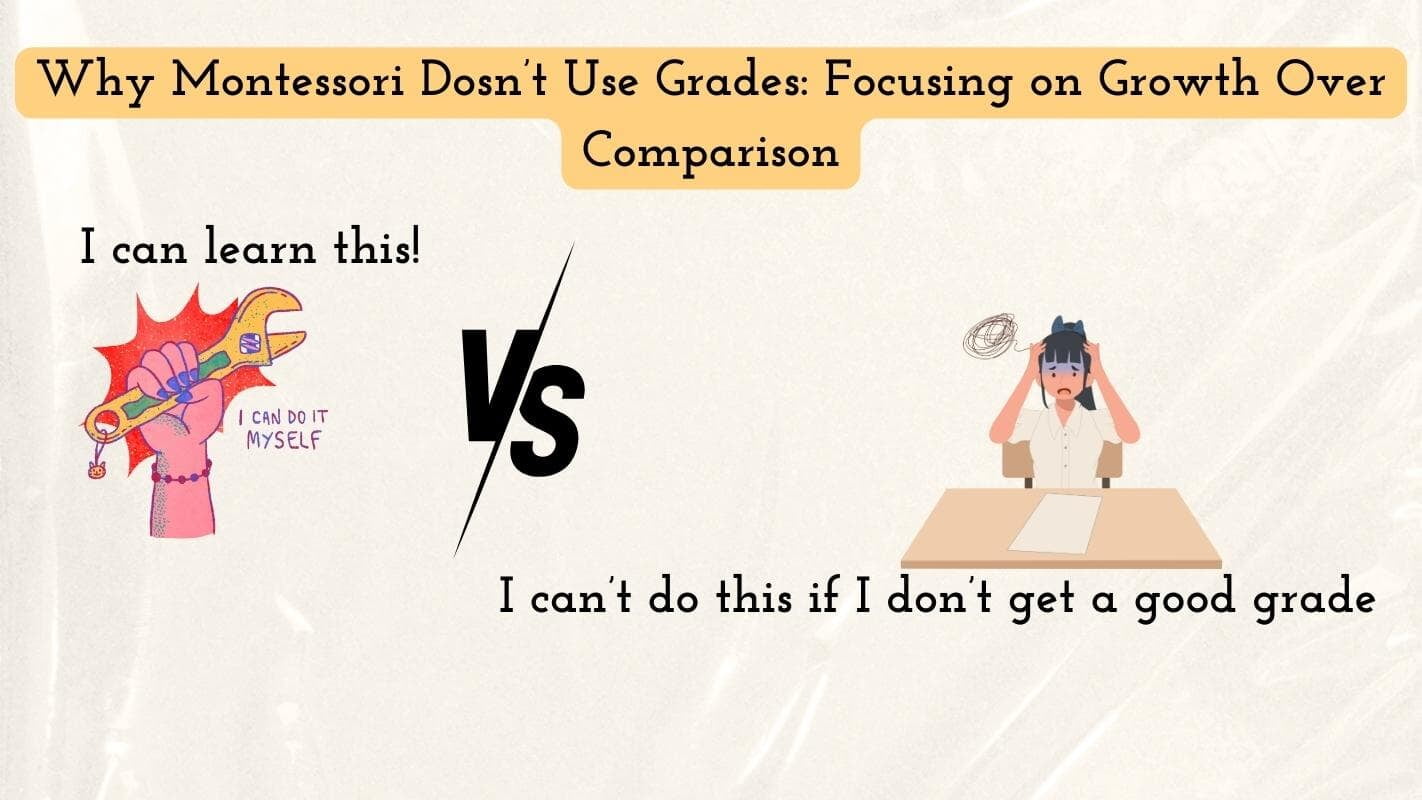Why Montessori Doesn’t Use Grades: Focusing on Growth Over Comparison

The Purpose of Grades in Traditional Education
In traditional education, grades are often used to measure and compare academic performance. They serve as a standard method for evaluating how well students meet learning objectives, providing a straightforward way for parents, teachers, and administrators to assess progress. However, the emphasis on grades can inadvertently shift the focus from learning itself to performing for a score, impacting children’s self-esteem and motivation.
Research supports that traditional grading systems can have unintended consequences on students’ mental health. For instance, studies by the American Psychological Association (APA) indicate that the pressure to achieve high grades can lead to increased anxiety and stress among students. When grades become tied to a child’s self-worth, they may develop feelings of inadequacy or failure if they don’t meet these external expectations.
Fostering a Growth Mindset Over a Fixed Mindset
The absence of grades in Montessori classrooms helps foster a growth mindset, where children see challenges as opportunities to learn rather than obstacles that could lead to failure. Stanford psychologist Carol Dweck’s research on growth mindset has shown that when children believe their abilities can be developed through effort and learning, they are more resilient, motivated, and open to new challenges. In contrast, traditional grading can encourage a fixed mindset, where students may see their abilities as static, which can lead to fear of failure and avoidance of difficult tasks.
Without grades, Montessori students are encouraged to focus on improving their skills and knowledge rather than competing with classmates. This creates an environment where children learn to celebrate their own achievements and recognize progress as personal growth, not as a comparison to others.
The Impact of Comparison on Mental Health
Research shows that frequent comparisons among students can have negative effects on mental health. Studies from institutions like the University of Michigan have found that academic comparison and competition, often fueled by grades, are linked to higher levels of stress and anxiety among students. When children feel that their worth is tied to their grades, they may experience “performance anxiety”—a fear of not meeting expectations that can undermine both mental well-being and academic performance.
A real Institute of Mental Health suggests that high levels of academic pressure can also impact children’s self-esteem and social interactions, as students who struggle may feel discouraged or ostracized. In Montessori education, the absence of grading and comparison supports mental well-being by allowing children to progress at their own pace without the stress of competition. Each child’s journey is valued, making learning a positive experience.
How Montessori Promotes Lifelong Learning
One of the core principles of Montessori education is to foster lifelong learners—individuals who pursue knowledge out of curiosity and joy rather than obligation. When children learn in an environment that emphasizes exploration and intrinsic motivation, they become more confident and willing to tackle challenges. Without the pressure to achieve specific grades, Montessori students develop a deeper understanding of subjects, as they’re free to focus on mastering concepts at their own pace.
Conclusion: A Path Focused on Individual Growth
In a world where academic success is often measured by grades, Montessori education offers a refreshing perspective that values each child’s unique journey. By removing grades and the associated pressures, Montessori promotes an educational experience that celebrates individual growth, creativity, and resilience. Children at Dew Drops Academy, rooted in Montessori principles, are encouraged to view learning as a joyful, lifelong process.
By choosing Montessori, parents are investing in an education that nurtures each child’s potential without the constraints and comparisons of traditional grading systems. This approach not only supports children’s academic success but also promotes mental well-being, preparing them for a future where they lead with confidence, creativity, and curiosity.
